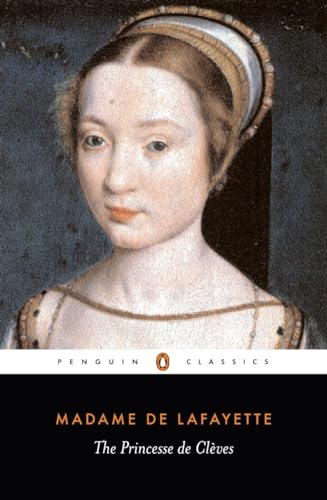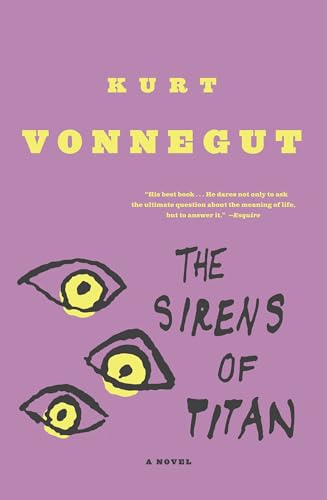So that you may get to know us better, it’s The Millions Quiz, yet another occasionally appearing series. Here, as conceived of by our contributor Emily, we answer questions about our reading habits and interests, the small details of life the like-minded folks may find illuminating, and we ask you to join us by providing your own answers in the comments or on your own blogs.
Today’s Question: New, Used, or Antequarian?
Edan: My preference is for new books – to me, reading someone’s yellowed copy of Pride and Prejudice feels too much like wearing that same someone’s stinky sneakers. Well, maybe it’s not that bad, but I can never drum up the same kind of lust for the used as I can for the new. This might have its origins in childhood trips to Children’s Book World in West L.A. where I went to attack L.M. Montgomery’s entire oeuvre, or to get the latest installment of the Babysitter’s Club series. My appreciation for the new became part of my job at Book Soup; there I spent a lot of time stacking smooth hardcovers and shiny paperbacks, and oohing and aahing over what the receiver unpacked next. Even now I can’t help but fix displays at my local bookstore – it’s just too pleasurable to handle all those new novels.
For me, buying a new book is an event, and after a day or two of reading, I write my name, and the month and year, on the book’s inside cover. I rarely get rid of the new books I buy; the connection is too deep. I love starting with a stiff and shy paperback, and ending with something dog eared, scribbled on, and creased – in that process, the book becomes read, and becomes mine.
Andrew: I know I’ve been in a good used-book shop if, upon leaving, I begin to muse what it would be like to quit my job, buy the shop in question, and become Andrew Saikali, bookseller, Esq. Then reality usually sets in, and I forget this fanciful notion.
Second-hand book shops are like an extended version of my den – they are what it would resemble if I had the resources. So, for me, because of the experience of buying used, coupled with the cost-savings, second-hand books trump even the shiniest new books. That said, on occasion I’ll comb the city looking for a just-released title, price be damned. (Bob Dylan’s Chronicles was a case in point.)
While I admire antiquarian books – taunting me as they do from their snobby little perch behind the glass, behind lock and key – I’ve always resisted the temptation to splurge. However, if anyone wishes to initiate me into the rarified world behind that glass, my birthday is in April. You’ve missed this year’s, but you can begin to think about next year’s. I also like imported wine and fine chocolate.
Kevin: I don’t know if the problem is with me or with used book stores, but either way, the relationship always ends in disappointment. I want to like used book stores, to see them as little pockets of virtue in the miles and miles of new, shiny waste sold by other stores on the block. I want to admire the shy, balding hippy who runs the place, and his quiet young apprentice, who volunteers five hours a week for unlimited free trade-ins. In my first year in every city I’ve ever lived in, I’ve made the rounds of the local used bookstores. Usually my initial trip is also my last. My latest such dalliance was with two places down in Old City Philadelphia. Not wanting to leaving empty handed, I walked out with a frayed history of colonialism in Latin America and a collection of Vonnegut short stories. Both are sitting just where I left them when I came home, in a stack at the foot of my bed. One problem with big chain bookstores, I suppose, is the way they press books upon you, with table displays and prominent shelf placements. It’s hard to discern value that way, too, as hard as it is to determine the same among the undifferentiated clutter of most used book stores. That’s why, all in all, I prefer hand-me-downs from friends, and the library.
Emre: I find it hard not to get new, crisp books. There is a certain delight in slowly molding a novel’s spine until the covers bend for a comfortable one-hand-hold read. And, they smell good. That said, I prefer used books when reading not-so-recently published works. I appreciate three qualities in used books: artwork and fonts from a different era, notes by various previous owners (I enjoy the conversation regardless of whether we agree or not) and the randomness that often characterizes how I get them. So far they have – through friends, hole-in-the-wall bookstores or sidewalk vendors – introduced me to Bulgakov’s The Master and Margarita, Vonnegut’s Slaughterhouse-Five and The Sirens of Titan, and Dumas’s The Count of Monte Cristo, among others. As for collecting and caring for vintage books, I got nothing. Some sort of book karma seems to be recycling everything that passes through my hands.
Emily: Although I love a good rare books room (nothing like the feel of vellum and a little paleographic challenge), I don’t own anything much that’s worth more than the paper it’s printed on. I do own a first edition of Mary McCarthy’s first novel The Company She Keeps, but that wasn’t more than fifty dollars. No, the most expensive book in my collection, coming in at a whopping $92 plus shipping, is (try to contain your jealousy) the out-of-print Life, Letters, and Philosophical Regime of the Third Earl of Shaftesbury, edited by Benjamin Rand (1900). It’s a discharged copy from the University of Tennessee at Knoxville and falling apart in spite of the fact that quite a few of the pages were uncut when it arrived. This purchase was practical: The Stanford library didn’t have a copy and since I didn’t make it to see the manuscript version of Shaftesbury’s regimen at the National Archives in London, this was the most expedient solution. In general, I’m pretty cheap when it comes to books. My most recent acquisition, for example, was a copy of La Princesse de Cleve (1678) by Madame de Lafayette, considered by some literary historians to be the first European novel. And that was free! (The only treasure in box of books left outside a used bookstore after hours.) Probably my best “find” after a copy of Colley Cibber’s classic (and then, perhaps still, out of print) early eighteenth century play The Careless Husband that I found on the sidewalk in Park Slope.
Max: All three types of books speak to me. I blossomed as a reader thanks to used bookstores in Washington, DC and Charlottesville, where the books were cheap and I could easily compile the oeuvre of whoever I was obsessed with at the moment, Vonnegut or John Irving or Hemingway. But I’ve soured a bit on used books because too often used bookstores are hobbies of hoarders and impossible to navigate, or they are too polished and expensive. I will always love, however, the pocket paperbacks of the 50s to the 70s. I love the cover designs across those eras and I love being able to have a book with me, quite literally in my pocket, without having to schlep it awkwardly under my arm.
But new books are in most cases better. I find them incredibly tempting with their shiny covers and crisp pages, though, as noted, I do get a bit weary of lugging hardcovers. As for the antiquarian books, I sometimes fancy the idea that it might be fun to be a book collector, but I know I do not have the temperament for it. I cannot see books as objects in that way, and, with the few books of value I have accumulated over the years, I fret about what I am supposed to do with them… sell them? Lock them in a safe? They sit in a box so that they won’t get wrecked. And that’s no place for books to be.
So, tell us, in the comments or on your own blog: Used, new, or antiquarian?













